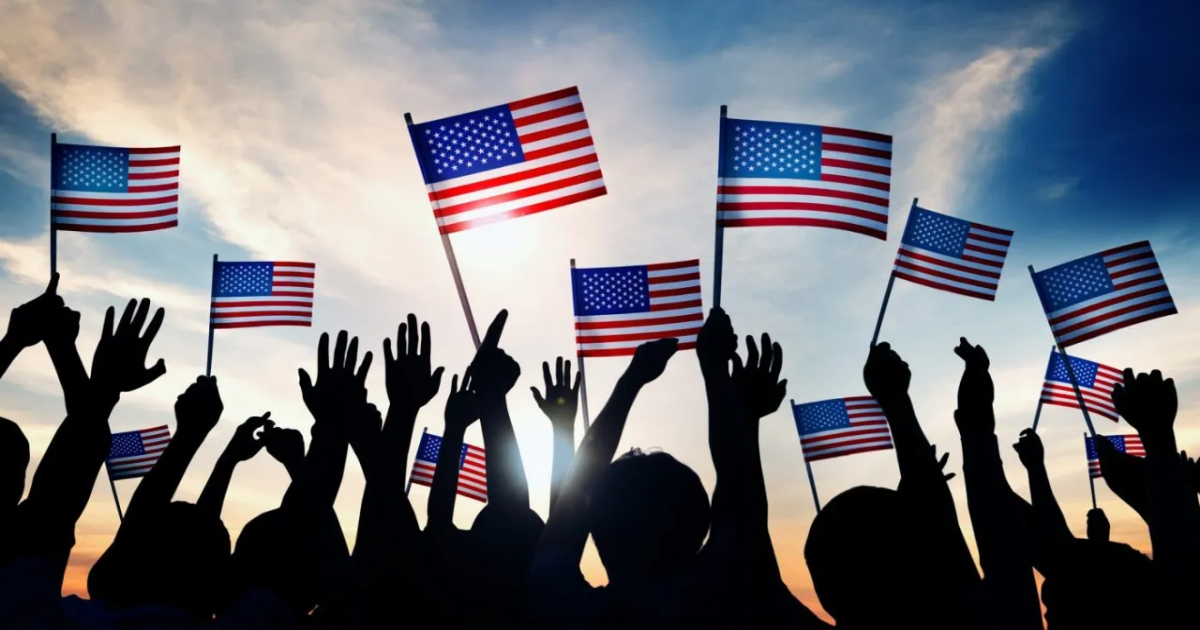This week, Americans will gather with family and friends to celebrate our independence. These celebrations will play out against the backdrop of recent instability at home and war abroad. There is an uneasiness in our land, accompanied by a sharp ideological and partisan divide, a torn social fabric, widespread government dysfunction and mounting national debt. Many wonder if our best days are behind us.
The reality is for all of our challenges and political differences, Americans still have so much going for us and more in common than what divides us. What we need now is some historical perspective and the recovering of our founding principles and spirit.
To begin with, despite our imperfections, the U.S. is still a great and good country. We displayed that when we helped save the world from another dark age, defeating fascism during World War II. Immediately after, we spent over 5 percent of our nation’s wealth to rebuild the very same countries we had just vanquished on the battlefield. The generous Marshall Plan not only revitalized Germany and Japan, it helped usher in a period of relative peace and prosperity the world had never known before. This “enlightened self-interest” also elevated America to global superpower status and created our middle class.
Today, for all of our challenges, to be born American is to win the lottery of life. That’s why we continue to see so many people from every corner of the world fight so hard to get here. On July 4, we should keep this top of mind and recommit ourselves to national renewal.
We should start by re-reading history and appreciating how this all happened in the first place. It was not destined; in fact, it almost didn’t happen at all.
After winning our independence, the 13 “Free and Independent States” struggled mightily under the Articles of Confederation. While we had liberty, we also had chaos. States were coining their own money, putting tariffs on other states and considering separate trade and security agreements with other nations. The Articles provided no taxing authority to the national government, and Massachusetts insisted on raising revenues for it anyway, sparking Shays’ Rebellion. This confederacy was failing.
Against long odds, the 55 delegates who gathered in Philadelphia in the spring of 1787 “to rectify these defects” toiled until they reached consensus behind an entirely new legal arrangement that created a republic grounded in constitutional and democratic principles.
With the benefit of hindsight, it is clear that some of their decisions were ingenious. Concluding that human nature was conflicted, capable at once of extraordinary love and sacrifice but also haunted by “darker angels,” they decentralized and separated political power, ensuring it was transparent, checked and accountable. This safeguarded our republic from the long history of despots the world over who have seized and abused power.
Unfortunately, over time we gave up on this time-tested founding principle. Beginning in the Progressive Era, we started centralizing power in the federal government, and especially in the office of the presidency — a trend that continues to this day, to a marked degree with the support of both political parties.
This may seem like a mere academic point, but it’s not. When we effect political change by presidential fiat rather than by the arduous legislative process, we deny ourselves the benefits that come from having to work together to accomplish difficult but necessary tasks.
With the American republic, sovereignty started with the citizen, who was expected to “self-govern,” displaying virtue and good judgment. As realists, the Founders expected citizens to advance their own self-interests, but they insisted citizens also advance the greater good of society. These were to be kept in balance along with the needs of current and future generations. Citizens had rights and responsibilities and were also expected to be educated, informed and engaged in the matters of state. Sadly, these founding principles, too, have largely fell out of practice and we are now out of balance.
Still, there are reasons for optimism. While the Constitution that came out of Philadelphia was itself a compromise meant to drive future compromise, the unexpected gift that came from having to work together or fail was a sense of common purpose — what I call the “Spirit of Philadelphia.” This powerful coalescent energy produced the unity, optimism and determination to face the many challenges that came with the advent of the Industrial Age.
It also created the “American Dream,” where citizens were free to rise to their God-given potential but balanced that with the hope that their children would go further than them in the race of life. This new reality was far from the ancient regime in Europe, where a person born a serf, died a serf.
It’s true that at the outset of our country the American Dream did not apply to everyone. But the lofty aspirations contained in the Declaration of Independence — that all were created equal — provided the north star for future generations to move towards. This is precisely what Martin Luther King Jr. meant when he said his dream was “deeply embedded in the American Dream,” likening the Declaration to a “promissory note,” redeemable by all.
As we celebrate our independence at a time when we know something needs to change, let us recommit ourselves to reawakening the “Spirit of Philadelphia.”
Happy birthday, America!
Chris Gibson is a decorated army combat veteran and former congressman from upstate New York. He is the author of “The Spirit of Philadelphia,” published by Routledge in May 2025.

